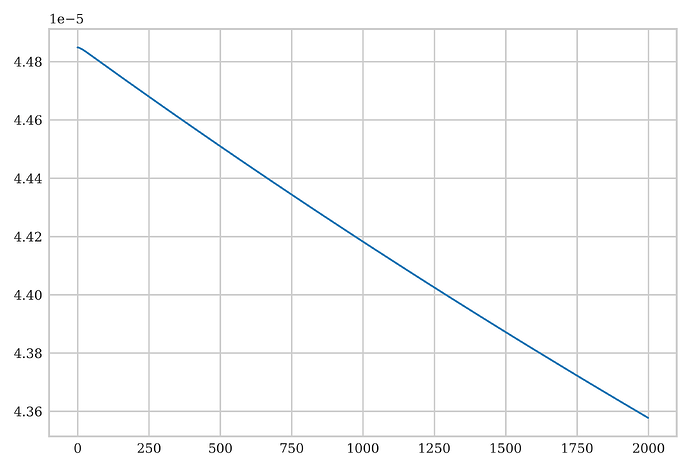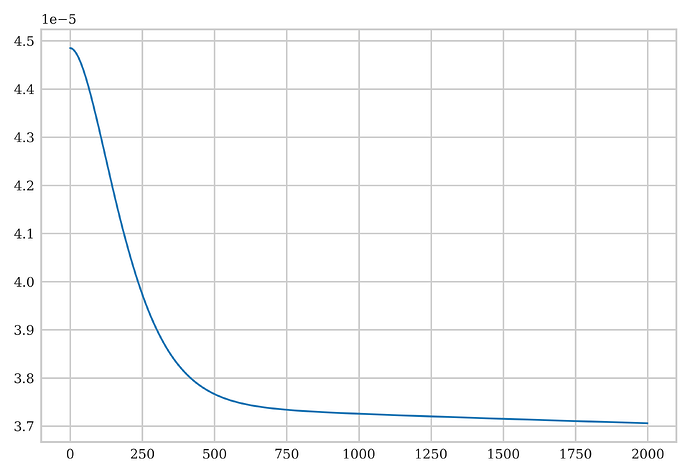Hi
I encountered this problem and haven’t been able to sort it out for a long while now. Everything works fine until the backward propagation.
it gives me the error message:
RuntimeError: one of the variables needed for gradient computation has been modified by an inplace operation: [torch.FloatTensor [1, 6]], which is output 0 of SliceBackward, is at version 30; expected version 27 instead. Hint: the backtrace further above shows the operation that failed to compute its gradient. The variable in question was changed in there or anywhere later. Good luck!
Heres the code:
#running [1,6] vector inputs to 3 NN models
torch.autograd.set_detect_anomaly(True)
optimizer = torch.optim.SGD(model.parameters(), lr=0.001)
#training
k=0
TrainData0=Mynodein[0,0:1,:].clone().detach().requires_grad_(True)
TrainData1=Mynodein[0,1:2,:].clone().detach().requires_grad_(True)
TrainData2=Mynodein[0,2:3,:].clone().detach().requires_grad_(True)
for epoch in range(50):
epoch_lossN0 = 0
epoch_lossN1 = 0
epoch_lossN2 = 0
lgcount=0
#for i in range(k*Tbatch,k*Tbatch+Tbatch):
for i in range(1):
N0_weight = model.T0_forward(TrainData0)
N1_weight = model.T1_forward(TrainData1)
N2_weight = model.T2_forward(TrainData2)
diff0=t[:,i]+TimeOfFlight_Matrix[0,:]-t[0,i]
#diff0=t[:,time_idx].clone()-t[0,time_idx].clone() #without propagation delay
diff0_cat=torch.cat([diff0[0:0], diff0[0+1:]])
prod0=torch.sum(diff0_cat* N0_weight)
t0=t[0,i]+Tnode[0] + prod0 #evaluates the next timestamp for node 0, i.e., t[0,i+1]
t[0,i+1]=t0
diff1=t[:,i]+TimeOfFlight_Matrix[1,:]-t[1,i]
#diff1=t[:,time_idx].clone()-t[1,time_idx].clone() #without propagation delay
diff1_cat=torch.cat([diff1[0:1], diff1[1+1:]])
prod1=torch.sum(diff1_cat* N1_weight)
t1=t[1,i]+Tnode[1] + prod1 #evaluates the next timestamp for node 1, i.e., t[1,i+1]
t[1,i+1]=t1
diff2=t[:,i]+TimeOfFlight_Matrix[2,:]-t[2,i]
#diff2=t[:,time_idx].clone()-t[e,time_idx].clone() #without propagation delay
diff2_cat=torch.cat([diff2[0:2], diff2[2+1:]])
prod2=torch.sum(diff2_cat* N2_weight)
t2=t[2,i]+Tnode[2] + prod2 #evaluates the next timestamp for node 2, i.e., t[2,i+1]
t[2,i+1]=t2
timevec=[t0,t1,t2]
lgtensor=torch.tensor(2+lgcount)
local_lossN0= torch.log(lgtensor)*lossfn0(timevec)
local_lossN1= torch.log(lgtensor)*lossfn1(timevec)
local_lossN2= torch.log(lgtensor)*lossfn2(timevec)
optimizer.zero_grad()
local_lossN0.backward(retain_graph=True)
local_lossN1.backward(retain_graph=True)
local_lossN2.backward(retain_graph=True)
optimizer.step()
I don’t know what I am doing wrong

